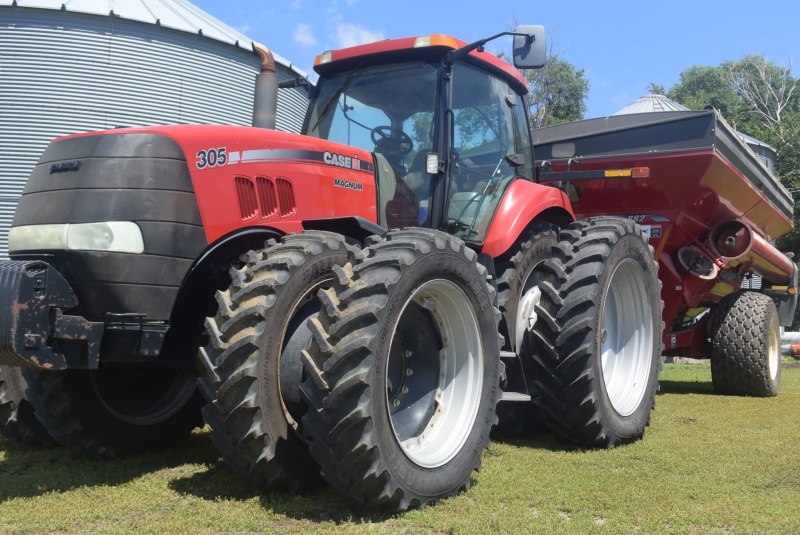A Collection of Our Best Info About IF/VF Tires
Farm equipment such as tractors and combines continues to grow larger and more powerful every year. Coinciding with the increasing size of farm machinery is our awareness of sustainable farming practices and the impact of equipment on fragile soils. Farming is becoming increasingly sophisticated, and every season we learn more about how today’s actions affect tomorrow's outcomes. One of the ways farmers are adapting is by switching to high-tech tires, such as our Alliance Agriflex IF/VF tires.

At their most basic, IF/VF tires allow farmers to carry between 20% and 40% more load than a standard radial or operate at 20% to 40% less pressure than a conventional radial tire. On closer inspection, IF/VF tires create a larger, more even footprint that distributes the weight of farm equipment over a greater surface area—minimizing soil compaction and increasing yields. Of course, IF/VF tires can also help speed up operational efficiency, provide better traction, and reduce fuel costs.
Interested in learning more about IF/VF tires? We’ve pulled some of our favorite blogs, testimonials, and videos into one place to make it easy!
Blogs:
- A Simple Guide To IF/VF Farm Tires
- Is IF/VF the Future of Farm Tires?
- Why IF/VF Tires are Being Developed
- Wet Spring Planting Goes Better with IF/VF Farm Tires
- The Alliance Agriflex+ 354 VF for Very Large Sprayers
- Tire Tales: IF/VF—Standard Radials on Steroids
- Tire Tales: Too Much Tractor Tire
Videos:
Contact your local dealer or rep today to learn more about our line of Agriflex IF/VF tires.


